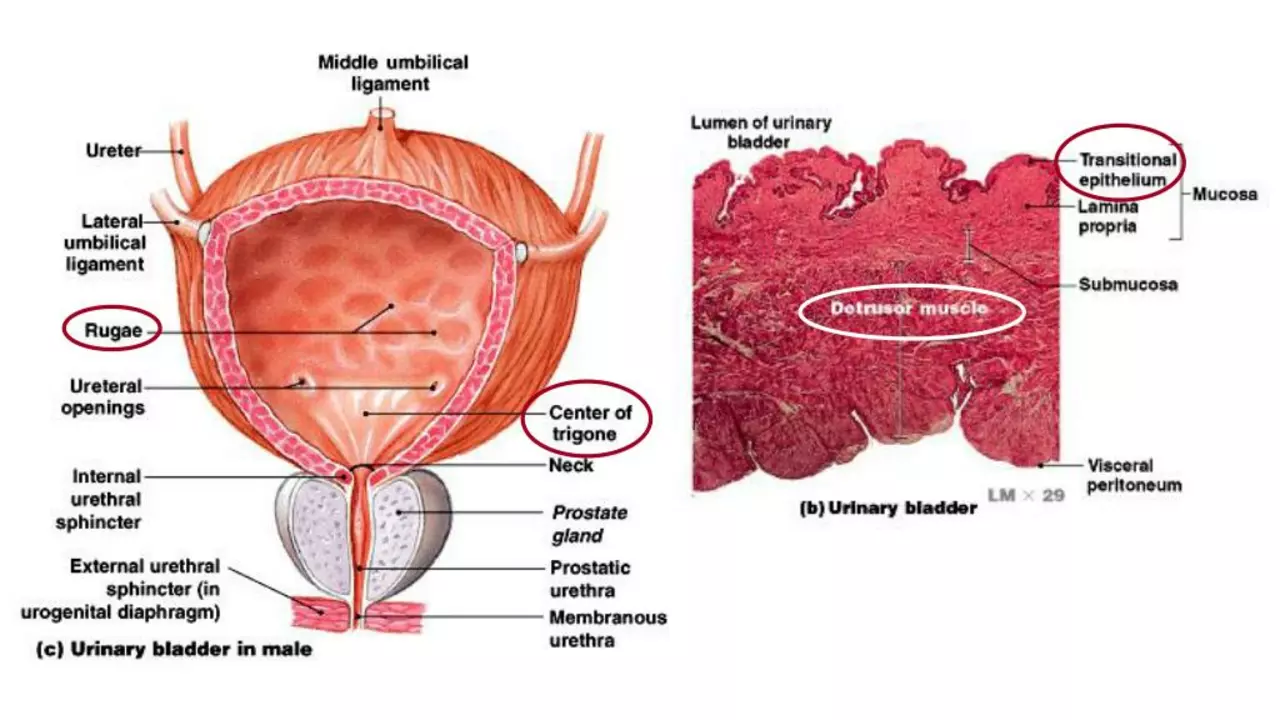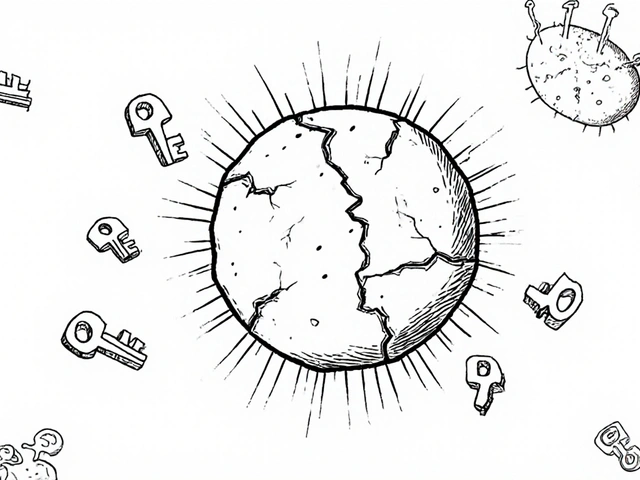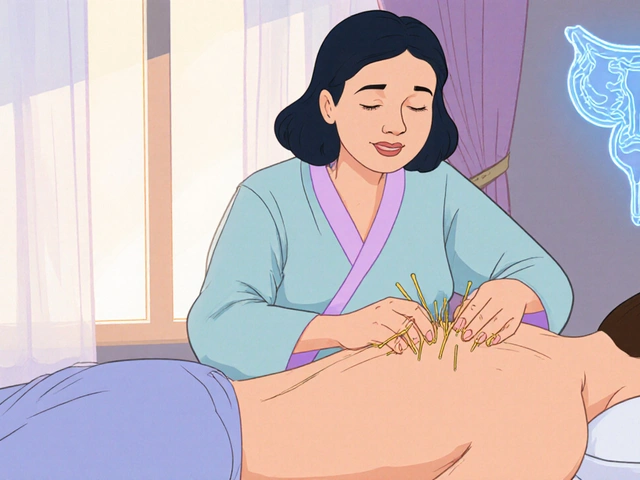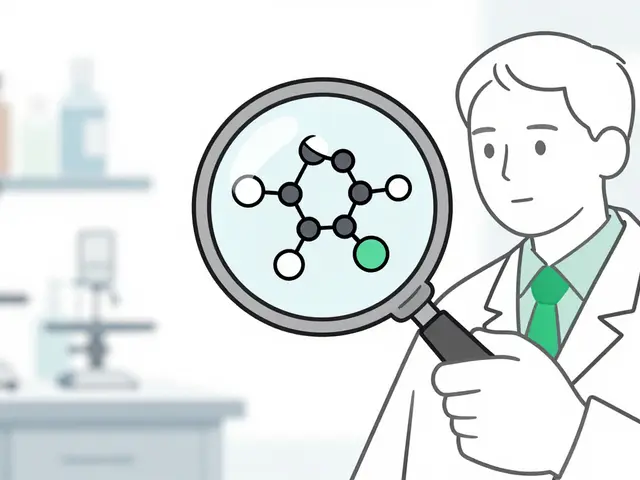The role of diet and hydration in managing bladder and urinary incontinence symptoms

- Colin Hurd
- 16 July 2023
- 6 Comments
Understanding the Basics of Bladder and Urinary Incontinence
Incontinence is a common condition that affects millions of people worldwide. It refers to the loss of bladder control, resulting in accidental leakage of urine. This condition can range from mild, occasional leaks to chronic, uncontrollable urination. The two main types of urinary incontinence are stress incontinence, which occurs during activities that exert pressure on the bladder like coughing or laughing, and urge incontinence, characterized by a sudden, intense need to urinate.
While incontinence can be embarrassing, it's important to remember that it's not an inevitable part of aging. It can be managed and often treated successfully. One of the ways to manage bladder and urinary incontinence symptoms is through diet and hydration.
The Importance of Hydration in Managing Incontinence
Contrary to what many people believe, drinking less water won't cure incontinence. In fact, it can make things worse. When you don't drink enough fluids, your body produces concentrated urine which can irritate the bladder and cause more frequent urination.
Drinking the right amount of water throughout the day keeps your urine dilute and helps prevent bladder irritation. It's recommended to drink six to eight 8-ounce glasses of water per day. However, this recommendation may vary depending on factors like age, gender, and overall health.
Reducing Bladder Irritants in Your Diet
What you eat can directly impact your bladder health. Certain foods and drinks can irritate the bladder, leading to incontinence. Common bladder irritants include caffeine, alcohol, spicy foods, citrus fruits, and artificial sweeteners. These substances can stimulate the bladder, causing a sudden need to urinate.
If you're dealing with incontinence, you might want to consider avoiding these irritants, or at least limit your consumption. Keep a food diary to track what you eat and drink, and how it affects your bladder. This can help you identify which foods and drinks to avoid.
The Role of Fiber in Managing Incontinence
Consuming a high-fiber diet can help manage incontinence symptoms. Fiber helps prevent constipation, which can put pressure on the bladder and worsen incontinence symptoms.
Include foods rich in fiber such as whole grains, fruits, vegetables, and legumes in your diet. Aim for at least 25 to 30 grams of fiber per day. If you're not used to a high-fiber diet, increase your intake gradually to prevent bloating and gas.
Maintaining a Healthy Weight
Being overweight or obese can worsen incontinence symptoms. Excess weight puts additional pressure on the bladder and surrounding muscles, leading to leakage.
Maintaining a healthy weight through a balanced diet and regular exercise can help manage incontinence. If you're overweight, even a small amount of weight loss can make a difference. Consult a healthcare professional or a dietitian for personalized advice on weight loss.
The Impact of Smoking on Bladder Health
Smoking can also exacerbate incontinence symptoms. The nicotine in cigarettes can irritate the bladder and cause frequent urination. Additionally, chronic coughing from smoking can put pressure on the bladder and lead to stress incontinence.
If you're a smoker and dealing with incontinence, quitting smoking can help manage your symptoms. There are plenty of resources available to help you quit, including nicotine replacement therapy and support groups.
Regular Exercise for Bladder Health
Regular physical activity can help manage incontinence. Exercise strengthens the muscles that support the bladder, reducing leakage. Moreover, regular exercise can help maintain a healthy weight, which is essential for managing incontinence.
Focus on exercises that strengthen your pelvic floor muscles, such as Kegels. These exercises are simple and can be done anywhere, at any time. Remember to consult with a healthcare professional before starting any new exercise regimen.
Conclusion: Managing Incontinence Through Diet and Hydration
In conclusion, diet and hydration play a crucial role in managing bladder and urinary incontinence. Staying hydrated, reducing bladder irritants in your diet, consuming a high-fiber diet, maintaining a healthy weight, quitting smoking, and exercising regularly can all help manage incontinence symptoms.
Remember, everyone is different, and what works for one person may not work for another. It's important to experiment with different strategies and see what works best for you. Always consult with a healthcare professional before making any major changes to your diet or exercise regimen.




Comments
Kevin Huston
Listen up, folks, the whole “drink less water to stop leaks” myth is as busted as a cheap firecracker on the Fourth of July. If you think dehydrating yourself will magically silence that obnoxious bladder, you’re living in a fantasy world that even the most gullible propaganda can’t salvage. Your kidneys are not some fickle bureaucrats waiting for a memo; they crank out urine whether you give them a sip or a gallon. When you skimp on H2O, the urine becomes a concentrated acid bath that screams at the bladder lining, turning a mild inconvenience into a full-blown riot. That’s why the medical pros shout the six‑to‑eight‑glass rule louder than a stadium announcer at a Super Bowl halftime. And don’t get me started on caffeine and booze – they’re the sneaky saboteurs that yank the bladder’s reins and leave you dancing to the urgent call of the restroom. Fiber, you ask? It’s the unsung hero that keeps the colon from staging a rebellion that pushes against the bladder like an over‑loaded truck on a rickety bridge. Load up on whole grains, beans, and veggies, and you’ll whisper a sweet thank‑you to your pelvic floor. Weight matters too; every extra pound is a tiny weightlifter on your bladder, and shedding a few is like taking off that extra sandbag. Quit smoking, because nicotine is the toxic drifter that inflames the bladder and forces you into a cough‑induced pressure cooker. Exercise isn’t just for looking good in a tank top – Kegel drills are the secret artillery that fortify the muscles keeping the floodgates shut. And if you’re still skeptical, keep a food diary; that paper trail will expose the hidden culprits faster than a federal investigation. Hydration, diet, weight, smoking, exercise – they’re the five pillars that any sane American should respect. Don’t let some lazy myth fool you into thinking you can outsmart your own body; you’re not a renegade outlaw in this battle. Take charge, drink water, eat fiber, move your body, and watch those leaks retreat like a defeated army.
July 16, 2023 AT 04:36
Amanda Hamlet
I cant beleive people still think they can just skip water and expect their bladder to behave, it's literally common sense. Honestly, if you woudnt be drinking coffee every hour and poppin' soda like it's candy, you'd have way less trouble. My mom always said keep a diary of what u eat and drink, and guess what? It works. So stop whining and start listening to the ones who actually know this stuff.
July 16, 2023 AT 05:26
Nolan Jones
Staying hydrated is key, just drink water.
July 16, 2023 AT 06:33
Jada Singleton
The article presents solid advice, yet it neglects the psychological impact of incontinence on self‑esteem. Patients often internalize shame, which can undermine adherence to the recommended lifestyle changes. A comprehensive plan should therefore include counseling alongside dietary modifications. Ignoring the emotional dimension is a disservice to those seeking holistic relief.
July 16, 2023 AT 07:40
Emily Rossiter
Great summary of practical steps; staying consistent with these habits can truly transform daily comfort. Remember that progress may be gradual, so celebrate each small victory along the way. If you need a buddy to keep you accountable, reach out to a community group or a trusted friend.
July 16, 2023 AT 08:46
Renee van Baar
Everyone’s journey with bladder health is unique, and that individuality deserves respect. By approaching diet and hydration as a collaborative experiment rather than a rigid prescription, you empower yourself to discover which foods soothe your bladder, which fluids keep you comfortably hydrated, and how lifestyle adjustments can be woven seamlessly into the tapestry of your daily routine, all while fostering a sense of agency and optimism that fuels lasting change. Tracking your intake with a simple notebook or a phone app provides tangible feedback that can guide future choices. Moreover, integrating gentle pelvic floor exercises and mindful stress‑reduction techniques creates a holistic framework that supports both physical and emotional well‑being. Stay patient, stay kind to yourself, and remember that each positive step, no matter how modest, contributes to a stronger, more confident you.
July 16, 2023 AT 09:53